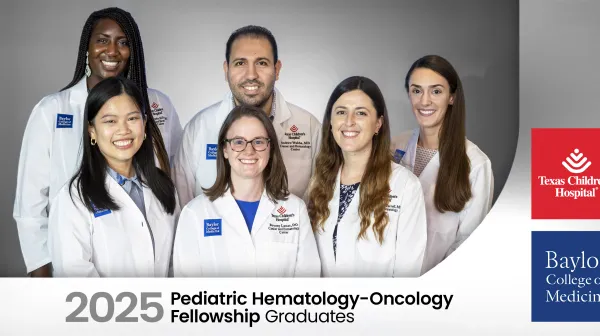Substantial advances in the treatment of pediatric patients with congenital heart disease (CHD) over the past few decades has led to a significant increase in the number of adults with the same disease, often referenced as adult congenital heart disease (ACHD). Research has shown that ACHD patients, particularly those with more severe CHD, have better outcomes and lower mortality when they’re cared for in specialized centers compared to those managed without specialized care.1
That’s one of the reasons Texas Children’s Heart Center has been steadily growing its Adult Congenital Heart program, specifically designed to treat CHD for a person's entire life. Launched in 2006, it’s one of the only such programs to design a dedicated facility specifically for the unique needs of adults with CHD.
Why treat ACHD patients at a pediatric hospital?
As the nation’s #1 pediatric heart center, Texas Children’s Hospital has helped children born with CHD live longer, healthier lives by revolutionizing diagnosis and treatment. Today, there are more adults living with CHD than children, and they need the same level of specialized care that they received during childhood.
“For our patients, both pediatric and adult, their hearts, structurally, aren’t the same. At an adult hospital, these patients will always be unique outliers, but in our program and facility, treating adults with CHD is the only thing we do,” said Peter Ermis, MD, FACC, medical director of the Adult Congenital Heart Program at Texas Children’s Hospital. "We have decades of experience with CHD, having pioneered treatments for children with the disease.”
It’s not only the patients who are unique — the physicians and extended team also have subspecialty training to address all of a patient’s cardiac concerns. While adult cardiologists may be unfamiliar with the altered cardiac anatomy and physiology of an adult patient who underwent a complex congenital heart defect surgery as a child, pediatric cardiologists may be unfamiliar with managing acquired adult diseases such as coronary artery disease, obesity or hyperlipidemia, which can be superimposed upon existing CHD.
“Our teams are trained in both pediatric and adult medicine and heart disease. All have CHD training specific to adult survivors of childhood disease,” Dr. Ermis said. “There are somewhere around 30,000 adult cardiologists in the United States and 3,000 pediatric cardiologists. But there are only around 450 board-certified ACHD cardiologists nationally — 14 of them are here. That’s a third of all ACHD board-certified cardiologists in Texas.”
In 2020, Texas Children’s Hospital welcomed patients to a first-of-its-kind facility designed by and for adults with CHD. The 27,000-square-foot space, situated on the 24th floor of Lester and Sue Smith Legacy Tower at Texas Children’s Hospital, is entirely managed by the dedicated Adult Congenital Heart team.
Collaborating with referring physicians
Patients generally come to the program, which sees more than 4,000 patients annually, a few different ways. Some have been cared for by a Texas Children’s Hospital provider throughout childhood and transition into the program when they become adults. Others are adults who are new to the area or seeking expert care from elsewhere in the United States and even internationally. About 10% of patients didn’t know they had CHD and were recently diagnosed (or their physician suspects a diagnosis) in adulthood.
Referring physicians are often cardiologists or primary care physicians, but may also be Ob/GYNs or maternal-fetal medicine physicians who refer patients for care during their pregnancies, another niche of the program.
“We’re here to help providers and be a resource for the wider medical community to answer questions or consult on a case. We’ll work with a physician in the way that best helps them support their patient population,” Dr. Ermis said. “For some, we assume care and communicate with the referring physician about the patient’s transition and initial visit. For some, alternating visits between our program and the referring team works best. And others may only see us on an as-needed basis.”
Dr. Ermis suggests having patients with CHD evaluated even if they’re not currently experiencing cardiac symptoms, as treatment options can sometimes be limited by the time symptoms appear.
“Treatment options have changed over the years. Patients may not have been candidates for certain options or may not have received them because of increased risk. Because this is our expertise, we’re comfortable managing even the most complex cases,” he said.
The team also invites referring physicians to participate in weekly meetings, where they discuss upcoming cases and the optimal approach with the full multidisciplinary team.
“We offer patients truly comprehensive care that’s designed specifically for ACHD patients — with dedicated psychologists, psychiatrists, physical therapists, nutrition and so on,” Dr. Ermis said. “For inpatients, the same is true: the critical care team, hospitalists and nursing team are all specifically dedicated for the Adult Congenital Heart Program.”
Learn more about the Adult Congenital Heart Program at Texas Children’s Hospital or refer a patient online.
1. American Heart Association and the American College of Cardiology Foundation. 2018 AHA/ACC Guideline for the Management of Adults With Congenital Heart Disease: A Report of the American College of Cardiology/American Heart Association Task Force on Clinical Practice Guidelines. Circulation. 2019;139:e698–e800.





